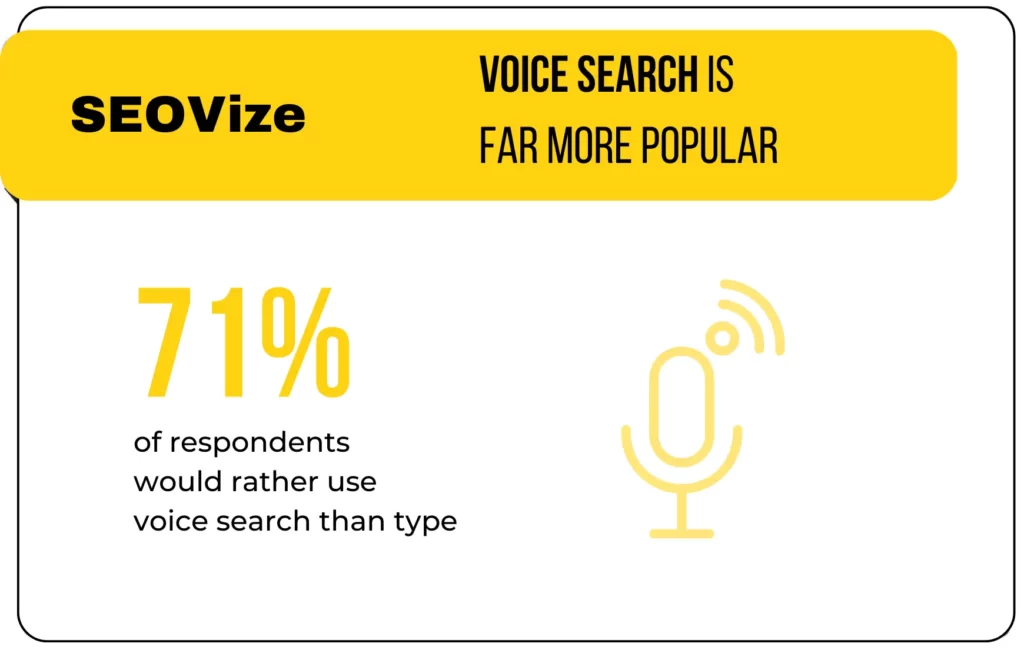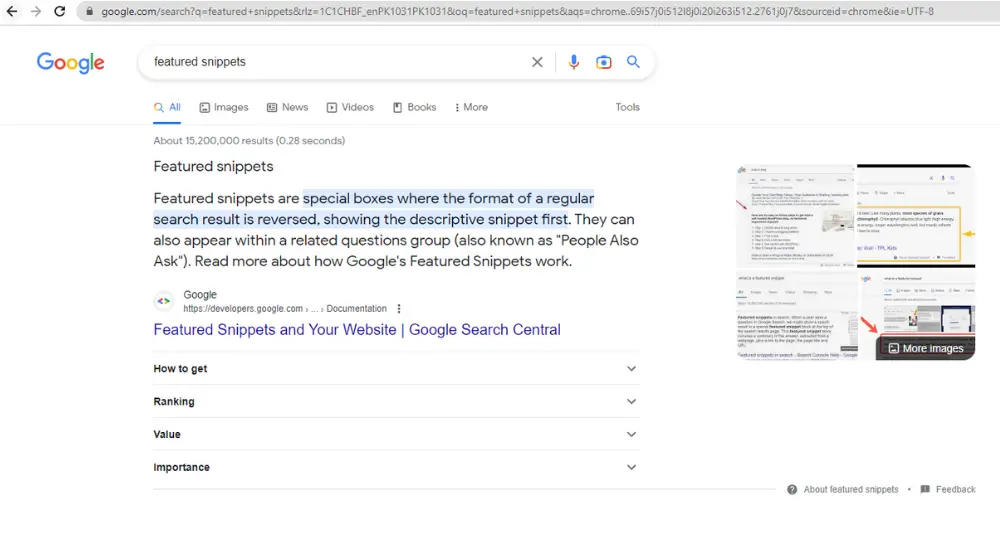
Search engine optimization (SEO) is an ever-changing field, and it seems like every few years, a new technology comes out that changes the game.
With the advent of voice search technology, we’re facing another shift in how people search for and find information online.
In this blog post, we’ll explore how voice search is changing SEO and what website owners and bloggers can do to stay ahead of the curve.
What is Voice Search?
Voice search allows users to ask questions or search for information using voice commands rather than typing them into a search engine.
This technology relies on natural language processing and artificial intelligence to translate speech into text and provide accurate search results.
Voice search usage has grown exponentially in recent years. According to a study by PWC, 71% of respondents would rather use voice search than type.

Furthermore, Alpine.AI estimates that by 2022 over 50% of searches will be voice-based.
Voice search is popular among all age groups but is particularly popular among younger users (ages 18-29) and middle-aged users (ages 30-43).
Why Are More People Using It?
Convenience, speed, and the ability to multitask are among the main reasons people use voice search. With voice recognition technology improving, users find that voice search provides accurate results quickly and conveniently.
How Voice Search Is Changing SEO?
As voice search becomes more dominant, search engine algorithms also adapt to understand and provide better results for users.
Natural Language Search Queries
One of the biggest differences between text-based search and voice search is the way people phrase their queries.
With text-based search, people are more likely to use shortened or fragmented phrases and keywords to get to the information they need.
But with voice search, people tend to use more natural language and ask questions instead of just using keywords.
This means that you need to start thinking about creating content that answers questions and provides relevant information in a conversational tone.
This will help you rank higher for voice search queries and ensure that your content is more easily discoverable by the people searching for it.
Featured Snippets
Featured snippets have been around for a while, but they’ve become even more important with the rise of voice search.
When people ask a question via voice search, the search engine will often respond with a featured snippet, which is a highlighted excerpt from a website that provides the answer to the question.

You can optimize your content for featured snippets by including concise and informative answers to common questions. This will increase your chances of being featured in a snippet and will also make your website’s content more attractive to users.
Local Search
Voice search is often used for local searches, such as “restaurants near me” or “gas stations nearby.” This means website owners need to ensure that their content is optimized for local search queries.
One way to do this is by creating local landing pages that are optimized for specific geographic locations.
This will help you rank higher for local search queries and ensure that your content is more easily discoverable by the people searching for it. So, this is the time to optimize your website for local SEO.
Mobile Optimization
More and more people are using voice search on mobile devices, which means that you need to ensure that their websites are mobile-friendly and optimized for voice search. Nathan says about long-tail keywords:
This means ensuring that your website is easy to navigate, loads quickly, and is designed with mobile users in mind. You should also consider using structured data to help search engines better understand their content and provide more relevant results to users.
Long-Tail Keywords
Voice search SEO focuses on understanding natural language and phrasing, as users tend to speak their queries using more conversational language than when typing.
Long-tail keywords and full sentences become more essential to optimize a website for voice search. Users tend to use longer, more conversational phrases in voice searches.
Therefore, businesses need to target these kinds of long-tail keywords and questions rather than just traditional short, keyword-centric queries.
History And Evolution of Voice Search Technology
The history of voice search technology goes back to the 1960s when computers first started using speech recognition.
Today, we have powerful virtual assistants like Google Assistant, Alexa, and Siri that understand natural language queries and provide accurate results.
Google first introduced voice search in 2008 on the iPhone app. Since then, this technology has evolved and is now integrated with Google Assistant, Google Home, and various Android devices.
Tips to Optimize for Voice Search
Voice search has changed the way people interact with search engines, making it crucial for businesses to understand how to make their content more accessible.

Using Schema Markup to categorize your page
Implementing schema markup helps search engines understand your content better and delivers structured answers to voice search queries.
Understanding Your Customer’s Intent
Research and analyze the keywords and phrases that your target audience uses in voice searches. Focus on long-tail keywords and natural language to improve your content’s relevance to these queries.
Building A Detailed FAQ Page
Answer frequently asked questions and use conversational language to connect with your audience through voice search.
Resources for Voice Search Devices and Platforms
Leverage the growing number of voice search devices and platforms to gain a competitive edge in voice search optimization.
Devices such as Amazon Alexa, Google Home, and Apple Siri are leading the voice search revolution. Platforms like Android and iOS are also integrating voice search functionality in their offerings.
Conclusion
Voice search is changing the way people search for and find information online, and website owners and bloggers need to adapt if they want to stay ahead of the game.
By creating content that’s optimized for natural language search queries, featured snippets, local search, and mobile devices, they can ensure that their content is more easily discoverable by the people searching for it.
So, if you’re new to SEO or looking to stay ahead of the curve, it’s time to start thinking about how voice search is changing the game and what you can do to stay ahead.

